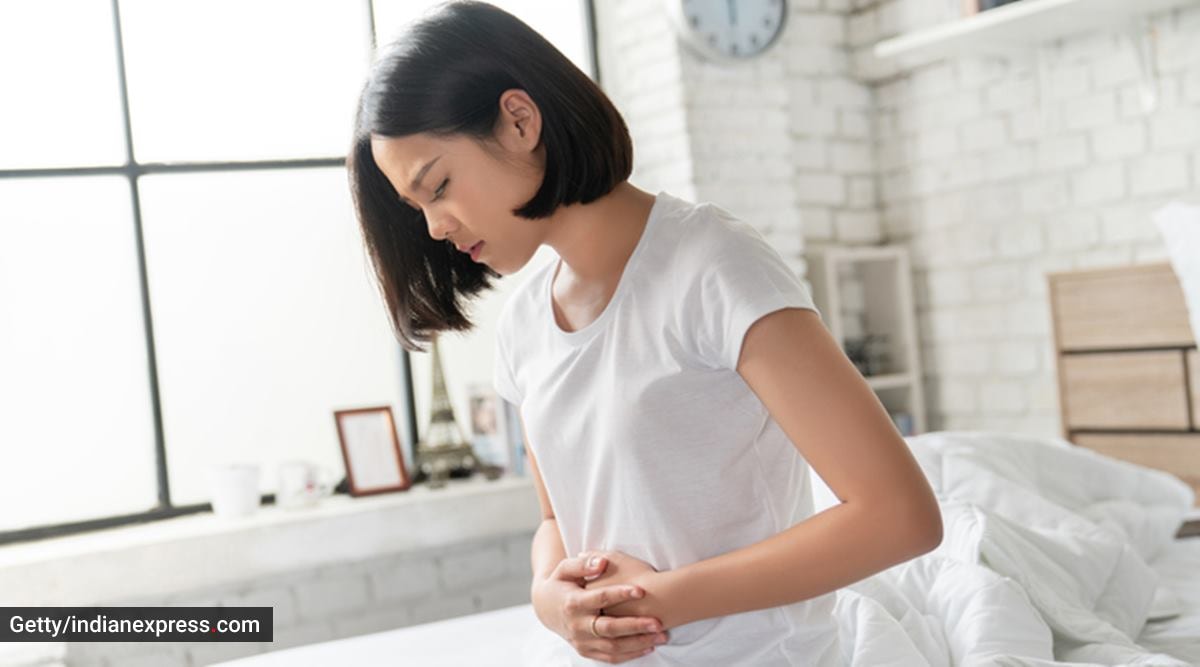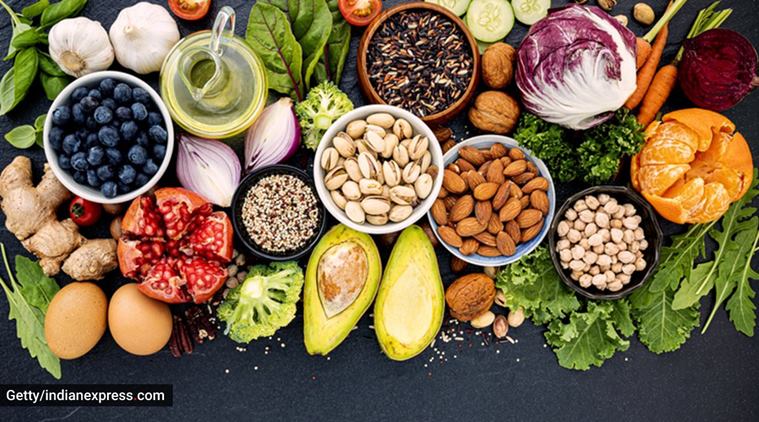 Abdominal cramps is a classic sign of PMS. (Photo: Getty/Thinkstock)
Abdominal cramps is a classic sign of PMS. (Photo: Getty/Thinkstock) While the pandemic has made us focus a lot on our health and well-being, there are many aspects of health which continue to be ignored still — sexual and reproductive health being one of them. In the many months that we have spent in uncertainty, coupled with long working hours, we have all been stressed. And it is a known fact that in the long run, stress can cause a host of problems, some of which can affect the reproductive system.
For women, it can trigger pre-existing issues or cause new conditions which could lead to fertility issues in the future, such as PCOS or extreme symptoms of PMS.
What is PCOS?
According to Dr Kshitiz Murdia, the CEO & co-founder of Indira IVF, PCOS is a hormonal disorder, common among women of the childbearing age. This condition disrupts the hormonal balance by increasing the production of male hormones (androgen) causing infrequent or prolonged periods. This causes PCOS follicles with immature eggs to form cysts which begin to grow inside the ovaries. Failure to produce mature eggs can impact ovulation, leading to problems like infertility, he explains.
Although there is no one particular cause for PCOS, doctors have narrowed it down to a few causes: family history, insulin resistance, sedentary lifestyle, unhealthy consumption patterns, etc.
 Exercising releases good hormones such as dopamine which helps in fighting PMS symptoms. (Photo: Getty/Thinkstock)
Exercising releases good hormones such as dopamine which helps in fighting PMS symptoms. (Photo: Getty/Thinkstock)
Symptoms for PCOS are:
* Menstrual problems such as irregular menstrual cycles, abnormal bleeding or spotting during periods or no periods.
* Alopecia, hair thinning or loss of scalp hair while observing normal hair growth on other parts of the body.
* Multiple miscarriages
* Experiencing depression
* Dark skin patches
* Increased mood swings and problems in conceiving.
* Other health concerns such as hypertension, diabetes, and increased cholesterol levels.
What is PMS?
According to Dr Murdia, premenstrual syndrome (PMS) defines a set of physical and emotional symptoms, which normally occur 2-7 days (often up to 14 days) prior to menstruation. “The symptoms usually last till the onset of the period or till a few days of the period. Allopregnanolone, a chemical released in the brain, is said to be one of the main factors responsible for triggering PMS symptoms. It can induce a range of symptoms affecting each person differently. These can depend on the menstrual cycle and other factors such as health, age, diet, etc.”
Its physical symptoms include fatigue, headaches, migraines, nausea, muscle spasms or pain in lower back, abdominal cramps, acne breakout, sleep disorders (insomnia or hypersomnia), food cravings (for sweet or savory food), loss of libido, etc. And emotional symptoms include mood swings, anxiety or depression, difficulty in focusing or concentrating, irritability, disinterest, etc.
 A nutritious diet with lots of fruits, vegetables, proteins, good fats, amino acids and 2-3 liters of water is important. (Photo: Getty/Thinkstock)
A nutritious diet with lots of fruits, vegetables, proteins, good fats, amino acids and 2-3 liters of water is important. (Photo: Getty/Thinkstock)
How can PCOS, PMS and their symptoms be managed?
1. Lifestyle: A healthy lifestyle is needed to manage the symptoms. Consumption of harmful substances such as alcohol and smoking should be avoided.
2. Healthy diet: Those who are diagnosed with PCOS are at a higher risk of becoming diabetic. A nutritious diet with lots of fruits, vegetables, proteins, good fats, amino acids and 2-3 liters of water is important. Junk and processed foods can prove to be harmful in the longer run.
3. Exercise: Regular exercise would help in building immunity, remaining active, and maintaining hormone levels, especially in the case of diabetes and heart-related diseases. Exercising releases good hormones such as dopamine which helps in fighting PMS symptoms like depression, anxiety, stress and sleep disorders.
4. Proper rest: Ensuring that your body gets time to rest and recoup is necessary during periods. If you’re experiencing cramps, abdomen pains, migraines, it is advised to give your body rest.
5. Medication: In severe cases of PCOS or PMS symptoms, it is recommended to visit your doctor and discuss your challenges. They may administer medication or treatment measures to alleviate these symptoms.
For more lifestyle news, follow us: Twitter: lifestyle_ie | Facebook: IE Lifestyle | Instagram: ie_lifestyle
- The Indian Express website has been rated GREEN for its credibility and trustworthiness by Newsguard, a global service that rates news sources for their journalistic standards.

